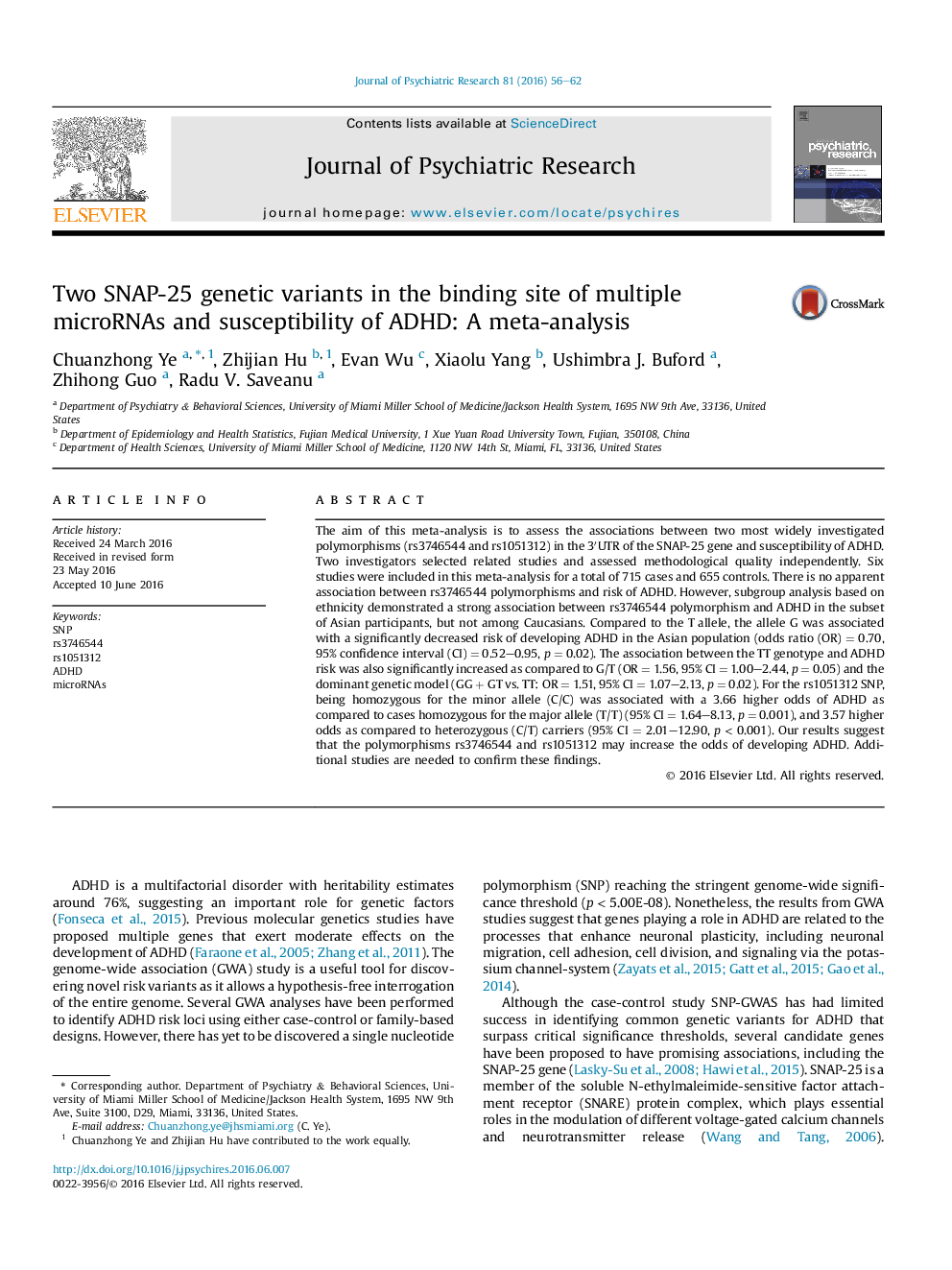| Article ID | Journal | Published Year | Pages | File Type |
|---|---|---|---|---|
| 326405 | Journal of Psychiatric Research | 2016 | 7 Pages |
The aim of this meta-analysis is to assess the associations between two most widely investigated polymorphisms (rs3746544 and rs1051312) in the 3′UTR of the SNAP-25 gene and susceptibility of ADHD. Two investigators selected related studies and assessed methodological quality independently. Six studies were included in this meta-analysis for a total of 715 cases and 655 controls. There is no apparent association between rs3746544 polymorphisms and risk of ADHD. However, subgroup analysis based on ethnicity demonstrated a strong association between rs3746544 polymorphism and ADHD in the subset of Asian participants, but not among Caucasians. Compared to the T allele, the allele G was associated with a significantly decreased risk of developing ADHD in the Asian population (odds ratio (OR) = 0.70, 95% confidence interval (CI) = 0.52–0.95, p = 0.02). The association between the TT genotype and ADHD risk was also significantly increased as compared to G/T (OR = 1.56, 95% CI = 1.00–2.44, p = 0.05) and the dominant genetic model (GG + GT vs. TT: OR = 1.51, 95% CI = 1.07–2.13, p = 0.02). For the rs1051312 SNP, being homozygous for the minor allele (C/C) was associated with a 3.66 higher odds of ADHD as compared to cases homozygous for the major allele (T/T) (95% CI = 1.64–8.13, p = 0.001), and 3.57 higher odds as compared to heterozygous (C/T) carriers (95% CI = 2.01–12.90, p < 0.001). Our results suggest that the polymorphisms rs3746544 and rs1051312 may increase the odds of developing ADHD. Additional studies are needed to confirm these findings.
